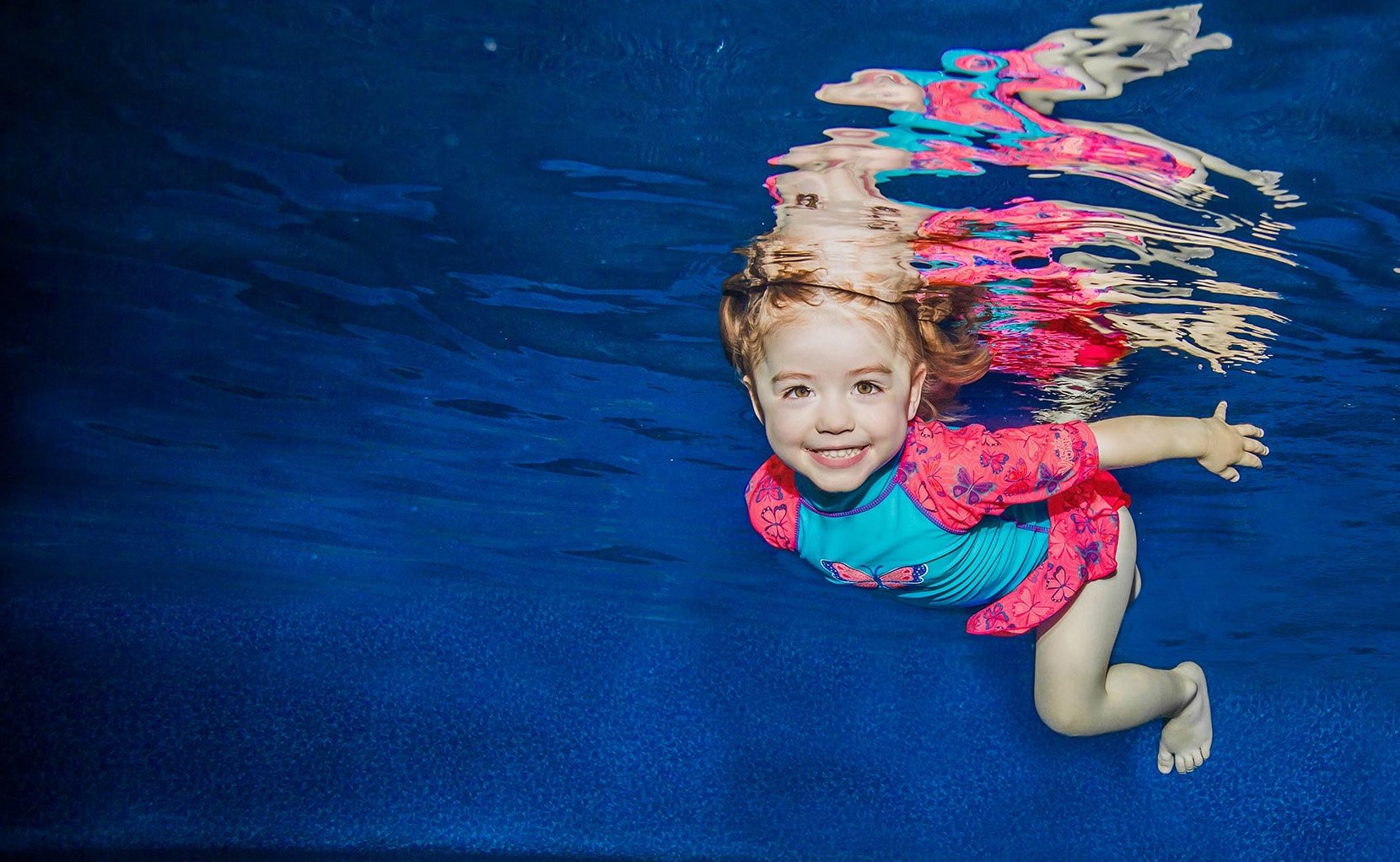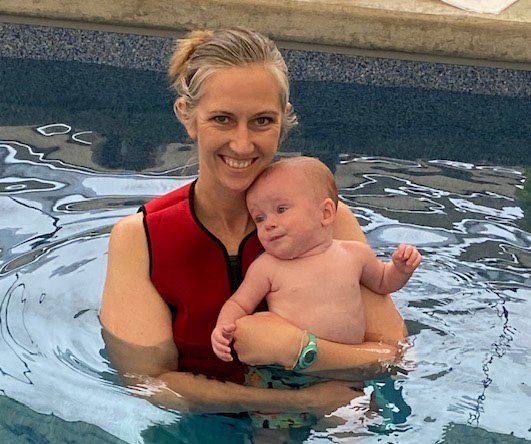
Self-Rescue Survival Swimming Lessons for Children 6 Months & Up!
Swim lessons outside Decatur, TX and Bowie, TX.
Hi, I’m Cassidee
Hi! My name is Cassidee Heath. I am married to my wonderful husband of 12 years and have 4 amazing young children! I was a special needs teacher for 8 years and I have taught Pre-K, but I am blessed to be able to stay home and homeschool my children now! I enjoy the outdoors, sports, and spending evenings cooking out with my family. I also volunteer at our church, serving in the Children’s Ministry, and I love to help with VBS every year! I received my degree in Education, specializing in Special Education, from the University of North Texas.
When my daughter turned 9 months old, I enrolled her in Swim and Smile TX with Kim Emery. I was astonished that my daughter was able to learn the technique to float at such a young age AND so quickly! Obviously, we didn’t stop there! She continued lessons with Kim until she was 5 and I believe that she is more excited than anyone about the pool that is going in the back yard! My son and other daughter also started lessons at young ages. Though never left unattended, I have always felt confident that if something had happened, they would have been able to save themselves thanks to the skills that Infant Aquatics taught them all.
In April of 2022, I completed 6 weeks of intensive training. I was blessed to be able to go back to Kim Emery for this amazing opportunity. I worked hands-on with dozens of babies and toddlers, and even a few young children. In addition to in-water training, I completed academic work that went along with it. I have acquired skills that will teach a parent and child how to safely be in or around the water by using self-rescue techniques and the swim-float-swim method. I continue to keep my CPR, AED, and First Aid certifications up to date.
My passion has always been working with children and I am more than thrilled to continue educating children and families about swim survival skills. I pray to reach as many children as possible in the years to come with this life-saving program. I am so blessed to have this opportunity and I look forward to teaching your child to love and respect the water!
FAQ
-
The ability of a baby to float and breathe, regardless of the water's depth, for an indefinite period of time.
How would your child react alone in the water?
The most essential survival swimming skill we will teach your child is to roll from a face-down position in the water to a face-up independent back float. Infants and toddlers cannot raise their heads to take a breath. If your child falls face down into the water, knowing how to roll onto a face-up back float can save a life! If your baby is walking, then he/she can also learn to swim to the pool edge or steps, rolling over to breathe whenever air is needed.
Roll over breathing is a technique that many schools and learn-to-swim teachers don't even attempt because it takes time, skill and patience. But once children learn to roll over to float, relax and breathe whenever air is needed, they can truly swim, stay afloat, conquer fear and experience the joy of swimming.
Take Control, Not Chances
It's not just about being comfortable in the water, it's being able to swim and survive. Empower your child with the skills needed to safely enjoy the water! Discover the Infant Aquatics Difference today!
-
Teach your baby or toddler to rescue himself in an aquatic emergency.
Drowning is the leading cause of death for children ages 1–4. Children are naturally drawn to pools, hot tubs, lakes, ponds, streams, reservoirs and beaches. Despite a parent's best efforts at supervision, it only takes one head turn before an accident has occurred.
Reasons to Get Started
You want your child to learn to swim and float in weeks, not years.
You or your extended family live or vacation around backyard pools or natural bodies of water.
You enjoy swimming and want your child to enjoy it as well.
You would rather take control of your child's safety than take chances.
-
Complete online registration for your child/ren.
Reserve a timeslot.
Complete online Medical and Contamination forms.
Review Parent Handbook and FAQ, and Rules.
Email with any and all questions. You have the opportunity for your instructor to address all your questions and concerns in advance of lessons.
-
Infants six to twelve months can learn to:
Hold their breath in the water
Roll from a face-down position to a face up back float
Float, relax and breathe until rescued by an adult
Perform these skills fully clothed
Particularly active infants may also learn to propel a short distance through the water between two parents. Learning these skills takes approximately 12 to 20 lessons.
Children who are walking (1-6 years) can learn to:
Hold their breath in the water.
Swim with their face in the water to the steps, side, or parent.
Roll over onto their back when they need to breathe.
Flip back onto their tummy to continue swimming until reaching their destination, or roll to their back should they need to breathe again.
Perform these skills fully clothed.
The timeframe for mastering these skills is typically 16 to 24 lessons.
-
How Are Lessons Structured?
Initial swimming lessons with Infant Aquatics are one-on-one, approximately 10 minutes in length, usually 4 or 5 days per week for 4-6 weeks. Each swim lesson builds upon the previous day's lesson, so there is measurable progress each week.
What is the Parent's Role?
We encourage parents of toddlers to get in the water for the first few lessons so that your child will experience less stranger and separation anxiety. Our goal for children of all ages is to establish a relationship of trust between your child and the instructor. Once this occurs, your child will learn to trust him/herself in the water and real progress begins.
How Can You Teach a Baby Who Cannot Talk?
Swimming and floating are motor skills that can be taught to a baby through repetitive exercises, along with gentle verbal encouragement. We show the babies what we want them to do, and over a short period of time, they learn the skills necessary to survive. Be assured, we do not throw children into the water! We use a variety of methods, combining the best ideas from swim schools and infant/toddler programs throughout the world. Our goal is to make learning fun so that your child will love his water experience.

